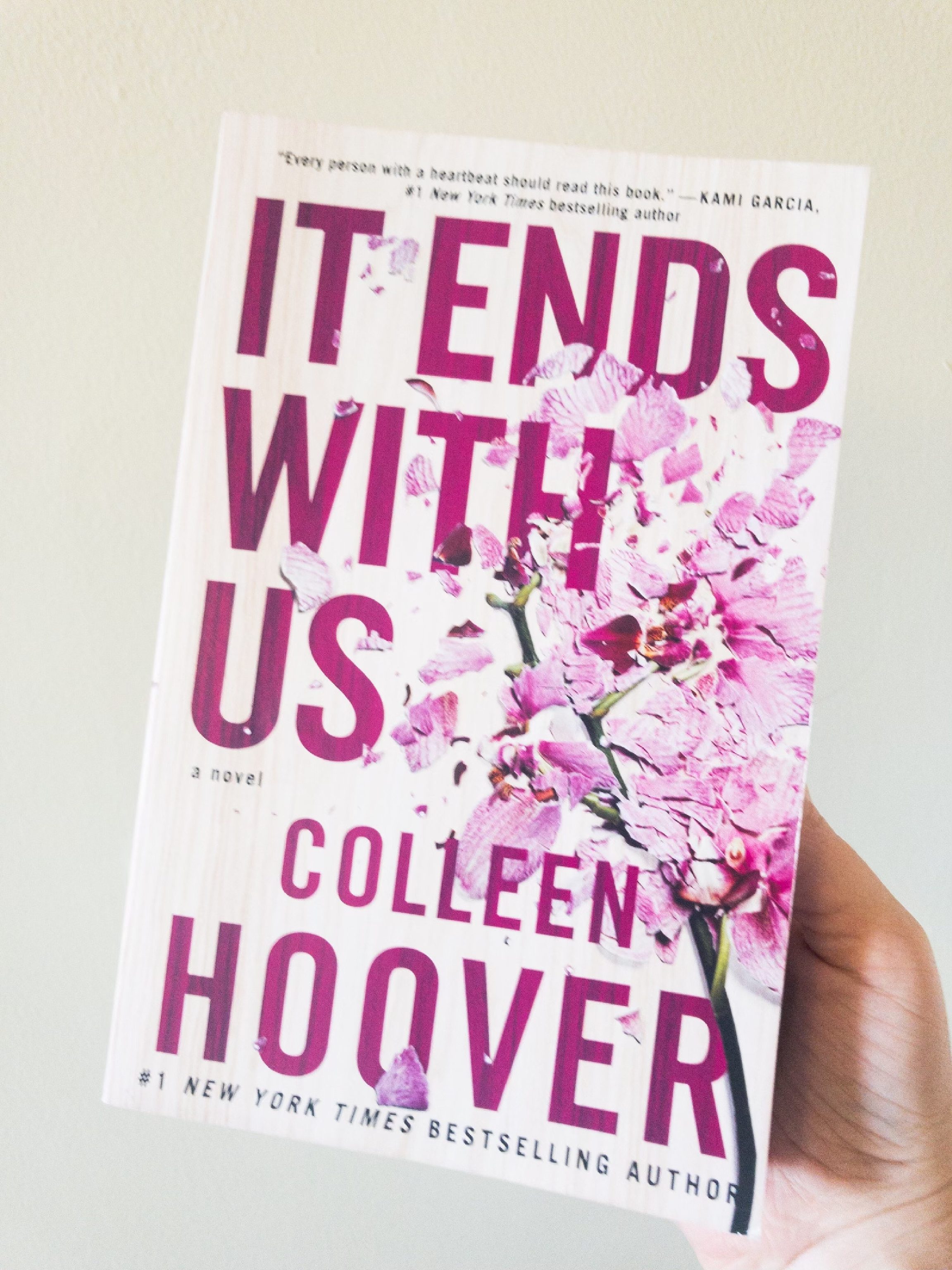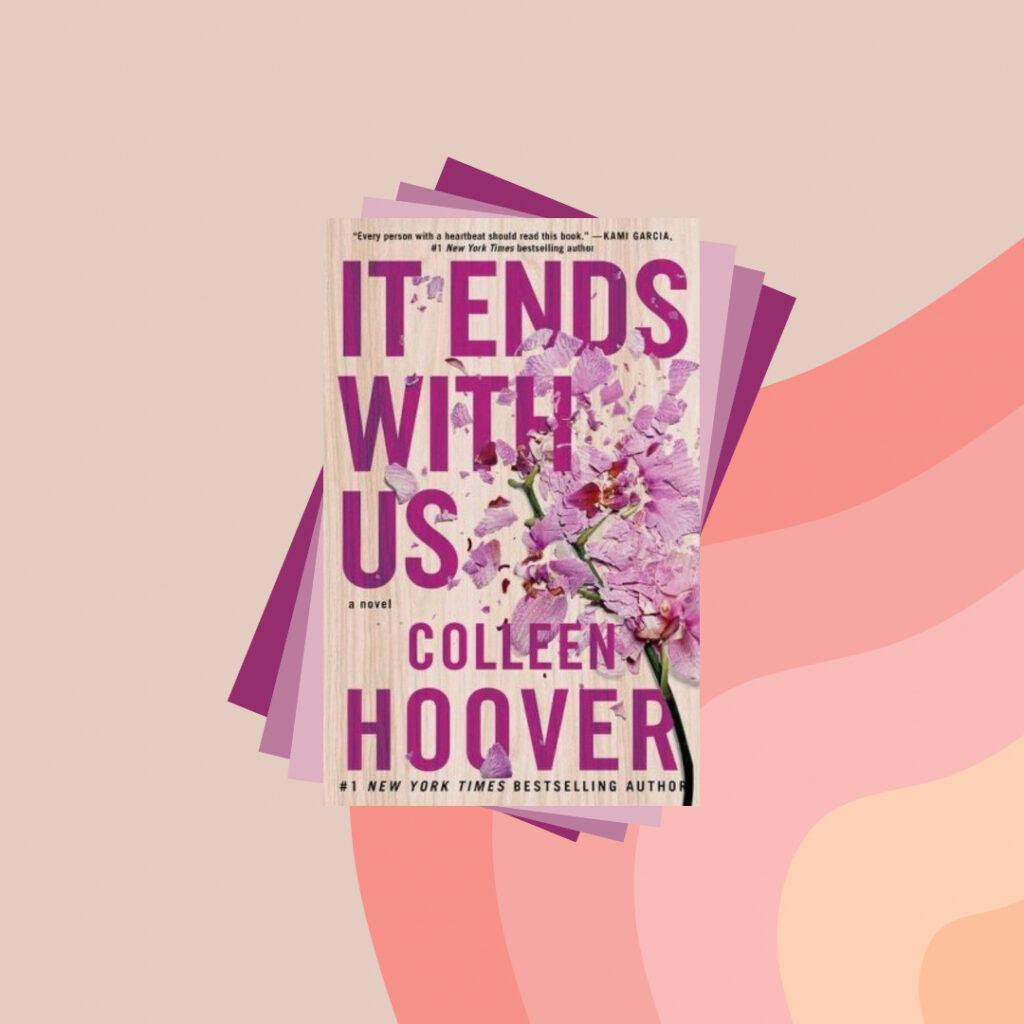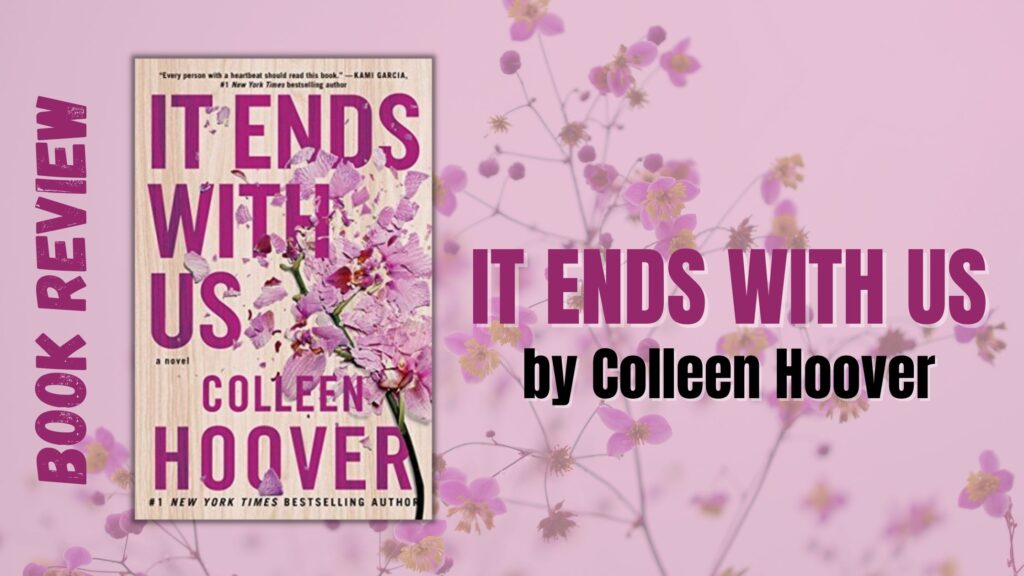It Ends With Us: A University Review
Related Articles: It Ends With Us: A University Review
Introduction
In this auspicious occasion, we are delighted to delve into the intriguing topic related to It Ends With Us: A University Review. Let’s weave interesting information and offer fresh perspectives to the readers.
Table of Content
It Ends With Us: A University Review

Colleen Hoover’s It Ends With Us has become a modern literary phenomenon, captivating readers with its raw portrayal of love, loss, and the complexities of human relationships. While the novel’s popularity transcends academic circles, exploring it within a university context offers a unique lens for analyzing its themes and literary merit.
Themes and Literary Devices
It Ends With Us tackles weighty topics that resonate deeply with university students. The central theme of domestic violence is portrayed with unflinching realism, prompting critical reflection on societal norms, power dynamics, and the often invisible struggles of victims. The novel’s exploration of toxic relationships resonates with young adults navigating complex romantic entanglements, prompting introspection and fostering awareness of healthy boundaries.
Beyond its social commentary, It Ends With Us employs compelling literary devices that enhance its impact. The use of dual timelines allows the reader to experience Lily’s present-day life alongside flashbacks of her past relationship with Ryle, creating a sense of suspense and unraveling the intricate layers of her trauma. This narrative structure effectively highlights the enduring impact of past experiences on the present, a theme particularly relevant to university students grappling with their own identities and the echoes of their past.
The novel’s protagonist, Lily, is a complex and relatable character. Her vulnerability, resilience, and journey of self-discovery resonate with readers, particularly those navigating the challenges of young adulthood. Her experiences with both love and abuse provide a multifaceted perspective on the complexities of human relationships, prompting readers to question societal expectations and embrace self-compassion.
University Applications
It Ends With Us presents a valuable opportunity for university students to engage in critical discussions about various academic disciplines:
- Psychology: The novel offers a nuanced exploration of trauma, attachment styles, and the psychological effects of abuse. Students can analyze Lily’s journey through the lens of psychological theories, examining concepts like post-traumatic stress disorder, codependency, and the impact of childhood experiences on adult relationships.
- Sociology: The novel delves into societal norms, gender roles, and the power dynamics that perpetuate domestic violence. Students can analyze the social context surrounding Lily’s experiences, examining factors like cultural expectations, economic disparities, and the role of gender in perpetuating abuse.
- Literature: The novel’s narrative structure, character development, and use of literary devices provide ample opportunities for literary analysis. Students can explore the effectiveness of Hoover’s writing style, the symbolism embedded within the narrative, and the impact of the novel’s ending on the overall message.
- Women’s Studies: The novel’s focus on a female protagonist navigating a patriarchal society offers a powerful platform for discussing issues related to women’s rights, gender equality, and the systemic challenges faced by women who experience domestic violence.
Benefits of Studying It Ends With Us in a University Setting
- Increased Awareness: The novel’s unflinching portrayal of domestic violence raises awareness of a critical social issue, encouraging students to engage in critical reflection and potentially seek out resources for themselves or others.
- Enhanced Empathy: By immersing themselves in Lily’s perspective, students develop a deeper understanding of the complexities of human relationships and the lived experiences of those who have survived abuse.
- Critical Thinking Skills: Analyzing the novel’s themes, literary devices, and social context challenges students to engage in critical thinking, fostering their analytical skills and promoting informed discussions.
- Personal Growth: The novel’s exploration of self-discovery, resilience, and healthy relationships provides a valuable opportunity for personal growth, encouraging students to reflect on their own values, boundaries, and the importance of self-care.
Related Searches
- Colleen Hoover Books: Explore the wider body of work by Colleen Hoover, including her other bestselling novels like Ugly Love and Confess.
- Domestic Violence Awareness: Delve into resources and organizations dedicated to raising awareness about domestic violence, providing support to victims, and advocating for social change.
- Toxic Relationships: Understand the characteristics of toxic relationships, the impact they have on individuals, and strategies for recognizing and escaping such situations.
- Trauma and Healing: Learn about the different types of trauma, the psychological effects of abuse, and various approaches to healing and recovery.
- Literary Analysis Techniques: Explore various literary analysis techniques that can be applied to It Ends With Us, such as character analysis, theme identification, and symbolism interpretation.
- Feminist Literature: Examine the novel within the context of feminist literature, analyzing its portrayal of women’s experiences, power dynamics, and societal expectations.
- Book Clubs and Discussion Groups: Find book clubs and discussion groups dedicated to It Ends With Us, engaging in conversations with fellow readers and gaining diverse perspectives.
- Writing Prompts and Creative Exercises: Use the novel as inspiration for writing prompts and creative exercises, exploring themes of love, loss, and self-discovery through personal narratives.
FAQs
Q: Is It Ends With Us appropriate for all university students?
A: While the novel tackles important themes, it contains mature content, including graphic depictions of domestic violence. It is crucial for universities to consider the potential impact on students and provide appropriate resources and support.
Q: How can universities incorporate It Ends With Us into their curriculum?
A: Universities can utilize the novel in various ways, including:
- Literature courses: Analyze the novel’s literary devices, narrative structure, and themes.
- Psychology courses: Explore the psychological effects of abuse, trauma, and attachment styles.
- Sociology courses: Discuss societal norms, power dynamics, and the social context of domestic violence.
- Women’s Studies courses: Examine the novel’s portrayal of women’s experiences, gender equality, and societal expectations.
- Book clubs and discussion groups: Facilitate open discussions and critical analysis of the novel’s themes and characters.
Q: What are the potential criticisms of It Ends With Us?
A: Some critics argue that the novel’s portrayal of domestic violence is overly romanticized, potentially minimizing the severity of the issue. Others criticize the novel’s ending, arguing that it lacks a sense of closure or justice for the protagonist.
Tips for Engaging with It Ends With Us in a University Setting
- Facilitate open and respectful discussions: Encourage students to share their perspectives and engage in critical analysis without judgment.
- Provide a safe space for discussion: Ensure that students feel comfortable expressing their thoughts and feelings without fear of being judged or silenced.
- Offer resources and support: Provide students with access to resources such as counseling services, domestic violence hotlines, and support groups.
- Connect the novel to real-world issues: Encourage students to research and discuss the impact of domestic violence on society and explore ways to advocate for change.
- Promote critical thinking and analysis: Encourage students to question the novel’s themes, characters, and narrative choices, fostering their analytical skills and promoting informed discussions.
Conclusion
It Ends With Us is a powerful and thought-provoking novel that offers a valuable opportunity for university students to engage in critical discussions about love, loss, and the complexities of human relationships. By analyzing the novel’s themes, literary devices, and social context, universities can provide a platform for students to develop critical thinking skills, increase their awareness of domestic violence, and foster empathy for those who have experienced abuse. While the novel may evoke strong emotions and raise challenging questions, its potential for fostering meaningful dialogue and promoting personal growth makes it a valuable resource for university communities.








Closure
Thus, we hope this article has provided valuable insights into It Ends With Us: A University Review. We hope you find this article informative and beneficial. See you in our next article!